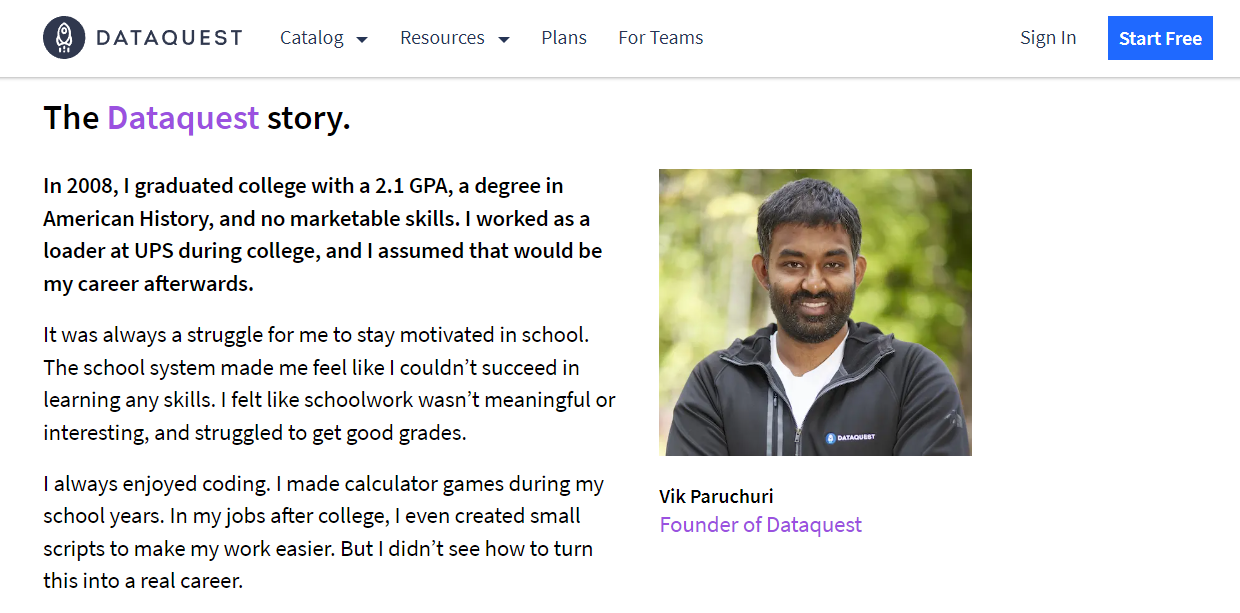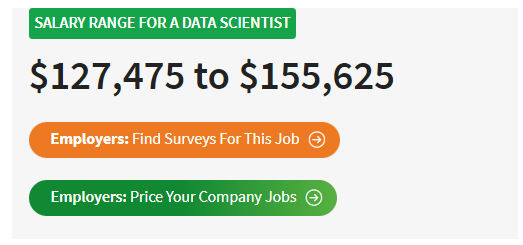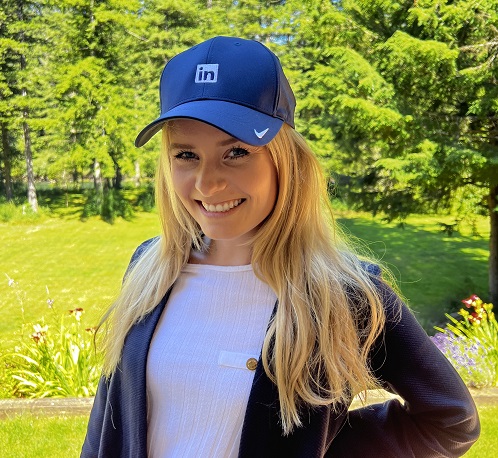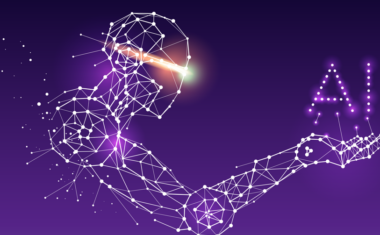Given the increasing amount of data that companies collect today, there’s an increased demand for data scientists too, and that’s not going to change anytime soon. Data scientists help companies make sense of large, complex data sets, and they’re well compensated for it. They are looking for experts in data analytics with practical data science skills, programming language skills, and knowledge of data science fundamentals and machine learning algorithms to fill hundreds of data scientist jobs. Entry-level data scientists often make as much as $100,000 per year. It’s no small wonder that you are interested in a data science career – but where and how do you start your job search? Is learning data science on your own possible?
An increasing number of colleges and universities are now offering data science degrees. But what if you don’t have the option of getting a traditional data science degree or a master’s degree in your field? Are data science bootcamps enough? Have any data scientists successfully launched careers without studying?
Can You Become a Data Scientist Without a Degree?
The short answer is yes. Even though many hiring companies require a bachelor’s degree, many data scientists and machine learning engineers have been able to land their first data science role without a degree. However, it’s not easy. There are many practical skills required, as well as a good deal of theoretical knowledge, and most people struggle to meet their career goals without professional training. There are other means and ways to enter the field, if you don’t want to pursue a formal STEM degree:
- Go the self-teaching route. Partner with like-minded individuals, join online forums, learn Python and other programming languages and work on your own projects to prove your worth.
- Gain work experience wherever you can. This may mean an internship or completing personal projects. Try to identify patterns in data that can solve real-world business problems and answer questions. It will help prove to employers that you have the right skills to do the job.
- Study! Know what it means to extract data, manipulate data, clean data and use data. Learn as much as you can about data wrangling, building predictive models, statistical computing, neural networks, deep learning, big data and probability theory as you can. It will come in handy down the line.
- Join a bootcamp. A bootcamp is often the fastest route to attaining your professional goals as you’ll gain practical skills in a short amount of time and gain access to career coaches and hiring partners.
It’s not impossible to become a data scientist without a degree. But it takes work! You can still launch a career as a data scientist and get a great data science job, even if you don’t have a data science degree. You enter the data science field by learning the programming language skills you need, gaining practical data science skills, and completing a data analytics bootcamp or two. You can even learn data science online, on-the-go. You just need to follow this 8-step guide.
So, yes, you can be a data professional, even without completing a data science degree. While some data science job descriptions may ask for advanced degree qualifications in math, computer science, and statistics, those aren’t necessarily hard requirements. The data science field is diverse and many data scientists got their first data science job without completing a formal education. You may even already have the skills you need. If you’ve already worked in data analytics, know a programming language, or have machine learning skills, you can learn data science in no time. Attending a few data science bootcamps will help too!


Become a Data Scientist. Land a Job or Your Money Back.
Build job-ready skills with 28 mini-projects, three capstones, and an advanced specialization project. Work 1:1 with an industry mentor. Land a job — or your money back.
What Do Data Scientists Do?
Data scientists are the rock stars of the data-driven world. They use their skills in deep learning, data manipulation, statistical computing, and probability theory to extract meaningful insights from data sets. These insights can then be used to solve business problems, gain inisghts, develop new products and services, and improve decision-making.
Each data science role can vary depending on the industry and company, but some common tasks include:
- Data wrangling: Cleaning and preparing data for analysis
- Exploratory data analysis: Understanding the patterns and trends in data, building data models
- Predictive modeling: Developing predictive models to predict future outcomes
- Machine learning: Building algorithms to learn from data and make decisions
- Communication: Presenting findings to stakeholders, answer questions, and going the extra mile for teams
Each data science role requires different skills. Practical skills required to pursue your professional goals include:
- Programming languages such as Python and R
- Statistical software such as SAS and SPSS
- Machine learning frameworks such as TensorFlow and PyTorch
- Cloud computing platforms such as AWS and Azure
- Data visualization tools such as Tableau and Power BI
Data scientists can also benefit from having a strong understanding of:
- Mathematics: Probability theory, statistics, and linear algebra
- Computer science: Algorithms, data structures, and databases, neural networks
- Domain knowledge: The industry or field in which they are working
In addition to technical skills, data scientists also need to have the right skills to work in a team, including strong communication and problem-solving skills. They need to be able to clearly explain their findings to non-technical audiences and to work effectively with others to solve complex problems.
Many hiring companies insist on a bachelor’s degree or other STEM degree, but you can hone the skills you need by working on your own projects and completing other tasks that match your career goals. Self-teaching isn’t for everyone though, so consider joining a bootcamp that can help you gain practical skills and complete personal projects.
How To Become a Data Scientist, Even If You Don’t Have a Data Science Degree: An Eight-Step Guide
Here’s a roadmap to becoming a data scientist and get your first data science job without a degree.
-
Start with an Online Data Science Course
-
Invest Time in Learning and Education
-
Become Familiar With the Right Programming Languages
-
Hone the Essential Data Science Skills
-
Learn the Requisite Tools
-
Gain Hands-On Experience
-
Create a GitHub Profile
-
Remember: Your Network Is Your Net Worth
-
Work Towards the Data Science Job You Want
Start with an Online Data Science Course
If you are really new to the field of Data Science, take a short online prep course. It’s the best way to get a grip on everything you need to know about the data science field, learn a programming language and how to use structured query language, master data analytics, the tools you need to use, and the fundamentals of the field. You can get an entry-level data science job with just an online course behind your belt – there’s no need to sign up for that expensive bachelor’s degree.
Invest Time in Learning and Education
Here are the three learning frameworks you can choose from if you don’t go the degree route:
Data Science Bootcamp
Data science bootcamps will deliver the data science knowledge and expertise you need in a more focused way and at a fraction of the time and cost of a degree. These data science courses will help you build a data science portfolio and prepare you for your first data science role. You’ll learn to identify patterns in data, manipulate and clean large data sets, organize and analyze raw data, extract data, the fundamentals of data wrangling, and everything else aspiring data scientists need to know.
How Can Data Sience Bootcamps Help?
The right data science bootcamps give you access to knowledgeable tutors who will be available for all your questions. You won’t have to spend hours looking for an answer online. Some bootcamps, like Springboard’s Data Science Bootcamp, offer a 100% money-back guarantee if you don’t land a data science job soon after graduating. This can help you enter a number of different data science careers, based on your interests. Many data analysts started their data science career this way.
Resources and Recommendations
- Springboard’s Data Science Bootcamp (for those with prior experience) and Data Science Prep Course (for those with no experience who want to qualify for the bootcamp)
- Data Science & Analytics Training by Kaplan
- The Tech Academy Online Data Science Bootcamp
Certificate Program
Certificate programs are a shorter and less intensive learning path. They usually have monthly subscription payments, which are often easier to finance. Potential employers will accept certificates and personal projects in lieu of a data science or similar bachelor’s degree.
How Can a Certificate Program Help?
Certifications usually cover one specific platform or tool. When you show expertise in one tool or platform, you can demand a pay increase as you become the go-to person for any issues related to the usage of that platform. You’ll learn the fundamentals and practical skills you’ll need, including mastering structured query language (SQL) and machine learning algorithms.
Resources and Recommendations
- Data Science Professional Certificate (IBM)
- From Data to Insights With Google Cloud Specialization
- Azure Data Scientist Associate Certificate by Microsoft
- TensorFlow Development Certificate
Self-Taught Route
Self-teaching is the most challenging route, but it’s also the most customizable. Here’s how to make it happen:
What Should You Cover?
You should cover the following in your first few months:
- Descriptive statistics to understand how to decipher and wrangle big data (probability, distributions, hypothesis testing, bayesian v. frequentist)
- Data extraction and other practical skills
- Languages like Python, SQL, and R
- Math (linear algebra, specifically)
- Machine learning
- Data Visualization
Best Ways To Learn (Both Free and Paid)
These sources can give you the knowledge and key skills you need:
Online Courses
- Learn SQL Basics for Data Science Specialization by UC Davis
- Applied Data Science with Python Specialization by the University of Michigan
- Mathematics for ML Specialization by Imperial College London
YouTube
Websites
- KDnuggets for guides and cheatsheets, meaningful insights
- Kaggle for discussions and data science competitions
- Towards Data Science for the latest trends and updates
Blogs
Books
- Practical Statistics for Data Scientists for Peter Bruce and Andrew Bruce
- Site Reliability Engineering by Google
- Hands-On Machine Learning with Scikit-Learn, Keras, and TensorFlow
- The Signal and the Noise by Nate Silver
- Applied Predictive Modeling by Max Kuhn and Kjell Johnson
More books are in this crowd-sourced list of data science book recommendations.
Follow Experts on Social Media
Engaging with these experts will help your data science learning journey:
- Cassie Kozyrkov, Chief Decision Scientist at Google
- Hilary Manson, co-founder at Hidden Door
- Vincent Granville, ex-Microsoft and ex-eBay
You can also join online forums and liaise with like-minded individuals to keep you motivated, e.g. find a group that you can learn Python from. It’s an important step for anyone that needs to study on their own.
Become Familiar With the Right Data Science Programming Languages
Here are popular languages for data scientists:
- Python. There are many resources for Python you can tap into. Most data professionals need to have an advanced understanding of Python frameworks.
- R. When you combine R with Python, you can do 80% of all coding tasks. Check out this Harvard course on R Basics.
- SQL. This is a non-negotiable requirement for every data science position. SQL courses are a great way to learn this.
- JavaScript. Data engineers find that JS is useful for R web frameworks, data visualizations, and ML models.
- Others. After you are comfortable with the above, you can explore other coding languages like C++, Scala, and Prolog.
Hone the Essential Data Science Skills
You need a combination of these fundamental data science skills to excel:
Technical Skills
Hardcore skills you can master with a dedicated learning plan include:
Data Visualization
Data scientists often have to spot data trends, and visual representations of the data make this process easier. You also need to know data visualization to make the data more digestible when presenting your findings to a stakeholder.
Machine Learning and Artificial Intelligence
Potential employers expect you to know basic machine learning and AI tools, making this a vital skill to learn. Deep learning is optional for data science, but knowing it will help you stand out.
Data Mining
Data scientists use data mining methods like linear regression and clustering analysis to sort through datasets.
Statistical Analysis
Knowing the foundational blocks of statistics is absolutely essential to data science.
Basic Understanding of System Administration
Knowing how to manage systems that are relevant (and peripheral) to your work is crucial for working efficiently. You will be handling a lot of software, so you need to be confident with their usage.
Soft Skills
Technical skills need to be layered with the right soft skills to maximize the value of your contributions. Here are a few you need:
Problem-Solving
Interpreting the problem or the question is the first step of any task you take on as a data scientist, so knowing what the end goal or issue is, and identifying the right data points, is vital.
Storytelling
Your data tells a story only you and other data scientists and analysts can understand. It’s your responsibility to communicate this story to other stakeholders in a non-technical way.
Continue Learning
Data science is always changing, and so you will constantly need to learn new languages, tools, or technologies for a career in the field.
Learn the Requisite Tools
Essential tools for data science include:
- Integrated Development Environments (IDEs) such as Sublime Text, Atom, and PyCharm
- Interactive environment for sharing documents and visualizations, like Jupyter Notebook
- Excel
- Structured Query Language (SQL)
The following data science tools are optional. But you will stand out among data science companies if you know how to use these:
- Docker for organizing multiple ML projects
- Tableau for data visualization
- Oracle SQL Developer, a free graphical user interface
Gain Hands-On Experience
If you’re applying for a data scientist role, but don’t have any experience, it helps to have a data science portfolio that you can show to recruiters. Here’s how to build one:
Work on Open-Source Projects or Create Your Own
Open-source data science projects are excellent avenues to apply your knowledge, as you get to collaborate with others and learn from them. GitHub is great for finding open-source projects, but you can also find projects at data science organizations like Driven Data Labs.
Go the Freelance Route
Freelancing is great for those who want to develop a side hustle while adding projects to their portfolio. Check out freelance websites like Upwork and Fiverr to find projects.
Find a Mentor
A mentor can significantly reduce the avoidable errors you make on your learning journey. But finding a mentor does take work. If you have a robust alum network to access, find someone with a profile that you would want to have someday. You can also follow industry experts online. See if you can organically sustain engagement with one of them.
Create a GitHub Profile
All data scientists need to know their way around GitHub, as your profile can highlight your passion for specific projects. This becomes less important as you gain more years of real-life experience.
Remember: Your Network Is Your Net Worth
Most openings don’t reach the job board since organizations find someone from their network to fill the role. Here’s how you can become a professional with a robust network:
- LinkedIn. Build a disciplined strategy to engage with industry leaders and decision-makers in the companies you want to work in.
- Online Communities. GitHub and Reddit are great for when you have technical questions, need career advice, or even general encouragement. While using these online communities, remember to contribute as much as you can. Your experience can help someone else too.
- Conferences. Data science conferences are a must for those who prefer face-to-face networking. You can gain contacts, build relationships, and expose yourself to different kinds of expertise.
Work Towards the Data Science Job You Want
You probably won’t land your dream job overnight. Take these steps towards it:
Pursue an Internship
Find companies that eventually hire interns for full-time roles. It will allow you to experience that work environment while you show your skills and expertise to the company.
Practice Your Interview Skills
Practice commonly asked interview questions, and make sure to sound confident, not mechanical. You should also be prepared to answer conceptual statistics-based questions.
Tailor Your Resume to Each Role
Data science has numerous sub-niches, such as machine learning, pure data analysis, and computer vision. Your resume should reflect projects and expertise in the precise niche you are applying to.
Consider a Related Role
Oftentimes, a role in data science doesn’t have “data scientist” in the title, as data science requires a combination of math, statistics, computer science, and domain knowledge. So look at the job description, rather than the title, to determine if a job is right for you.
Stay Up-to-Date
The best way to keep track of job opportunities is to keep in touch with the community. Join online forums and social media sites, ask peers about the job market or openings at their companies, and speak to recruiters.
Entry-Level Data Science Jobs and Related Roles
Here are some positions that will help you enter the industry:

- Data Science Intern. Once you have programming skills and basic knowledge of SQL and statistics, you’re ready for an internship. Hiring managers often look for a scientific mindset when it comes to data, decision-making, problem-solving skills, and projects.
- Junior Data Scientist. Entry-level jobs require gathering, scraping, and prepping data. Junior data scientists also have to be comfortable with testing different statistical models.
- Junior Data Analyst. This role will suit you if you’re more interested in crunching the numbers, as opposed to preparing and cleaning data.
- Junior Business Analyst. Consider this role if you want to switch to something more business or finance oriented.
- Junior Machine Learning Engineer. AI is becoming more popular, and machine learning is essential in big data analysis. If you’re interested in this field, learn everything you can about AI and NPL.
Becoming a Data Scientist If You Don’t Have a Degree: Real-Life Examples To Learn From
Sundas Khalid
Sundas was a high-school dropout who went to community college with an interest in business studies. She now has experience working at Amazon and Google in the data science teams.
During an “information systems” class in college, Sundas realized she wanted to do something related to data. Her next step was to pursue online courses and read blogs to supplement class knowledge. She then did a financial analysis internship.
Sundas started networking with the company’s data engineers and analysts and eventually started working with them. Her manager acted as her mentor, recommending books and online resources to complete her transition to data science. No master’s degree required!
Vik Paruchuri

The Founder and CEO of Dataquest had a History degree, but dove into a machine learning and data science career with just online guides and a passion for working in the field. He then started building personal data science projects around actual datasets. With every project, Vik learned a programming language or framework more deeply.
Vik advises any professional wanting to become a data scientist without a college degree to question everything they learn. Reading statistics-based articles, finding the source data, studying the patterns, and arriving at conclusions are excellent ways to reflect on your skills. Ramping up the complexity of the projects you take up and sharing your work with others will accelerate your learning.
Get To Know Other Data Science Students
Lou Zhang
Data Scientist at MachineMetrics
Joy Opsvig
Data Science Apprentice Engineer at LinkedIn
George Mendoza
Lead Solutions Manager at Hypergiant
What the Experts Say About Becoming a Data Scientist
Here’s what industry-leading experts had to say:
William Chen, Data Science Manager
“Candidates coming out of certain MS / Ph.D. programs may have advantages in data science, but if you can already get data science internships/job offers then there’s no need to pursue an additional degree to advance your career potential.”
Daniel Carroll, Principal Data Scientist at Aetna
“There certainly is a bias towards having an advanced quantitative degree, and I think it’s well deserved. There can be a bias against people with only bootcamp experience as well. However, the one thing a bootcamp can deliver that a really good university can’t is a really thorough understanding of how to build something from ideation to deployment—that’s a full-fledged capability I don’t see often from Ph.D.s. If you can bring that to light in a CV or interview, that will make you shine.”
George Mendoza, Data Scientist
“An advanced degree certainly helps. It’s a good signal that you can commit to something long-term; you obviously have some academic rigor behind you. But once you’re in the room with somebody, whether that’s a hiring manager or a client, it’s just you up there. It’s not you and your degrees.”
How Much Can a Data Scientist Earn?

The salary of a data scientist that doesn’t have a formal education doesn’t differ much from the salaries of data scientists in general. Data scientists can earn between $127,096 to $155,160. Degree qualifications do not affect the precise figure. Hiring managers look at knowledge and experience from any authoritative source, not just from formal education.
FAQs About Becoming a Data Scientist
Have more doubts? Here are some frequently asked questions about becoming a data scientist:
What Qualifications Do You Need To Become a Data Scientist?
There are no formal degree requirements, but you will need certain skills. It’s essential to have a working knowledge of Python, R, and SQL, in addition to having a firm grasp of statistical concepts and AI skills. Some data science roles may require a college degree or even a master’s degree, but the vast majority of employers value practical skills over an education.
Is Data Science Hard To Get Into?
Data science requires a significant time commitment to get into. Qualifying for entry-level data science jobs can take more than one year of committed learning.
Can You Become a Data Scientist Without a Computer Science Degree?
Yes, you can become a data scientist without a computer science (or any data-related) degree. Instead, you can show proof of knowledge through online courses, certifications, and bootcamps.
What Are Online Resources I Can Use to Learn Data Science Without a Degree?
If you want to become a data scientist without a degree in data science, you need to find a number of resources to help you with your job search. If you are going the self-teaching route, you need to make sure that you brush up on the skills required in the field. That means mastering linear algebra, probability theory, predictive models and statistical computing, learning how to extract insights from large sets of data and other tasks, and establishing a strong foundation in mathematics and coding. Because you’ll be learning at your own pace without help, you’ll need to maintain your intellectual curiosity and self-discipline throughout. Try to meet up with like-minded individuals that can keep you accountable. If that doesn’t work for you, there are various tools and resources to tap into for a small fee, including online college courses, or a data science boot camp. Many bootcamps work with hiring companies, which bring you one step closer to achieving your career goals. If you persist and are willing to go the extra mile, you can become a data scientist without a degree in data science.
Is the Field of Data Science Open to Someone Without a Degree in Data Science?
Yes, many companies are happy to hire someone with the right skills required for the job, relevant coding experience, and the ability to answer questions and solve real-world problems with data analysis. You can get a job without a degree – data science is in high demand. The ultimate goal is to pick up the necessary skills required to work in the field, gather and share insights, and empower management to make decisions. You can pick up the skills needed by attending self-paced courses or working on personal projects that prove your ability to solve complex problems using data.
Since you’re here…
Curious about a career in data science? Experiment with our free data science learning path, or join our Data Science Bootcamp, where you’ll get your tuition back if you don’t land a job after graduating. We’re confident because our courses work – check out our student success stories to get inspired.







